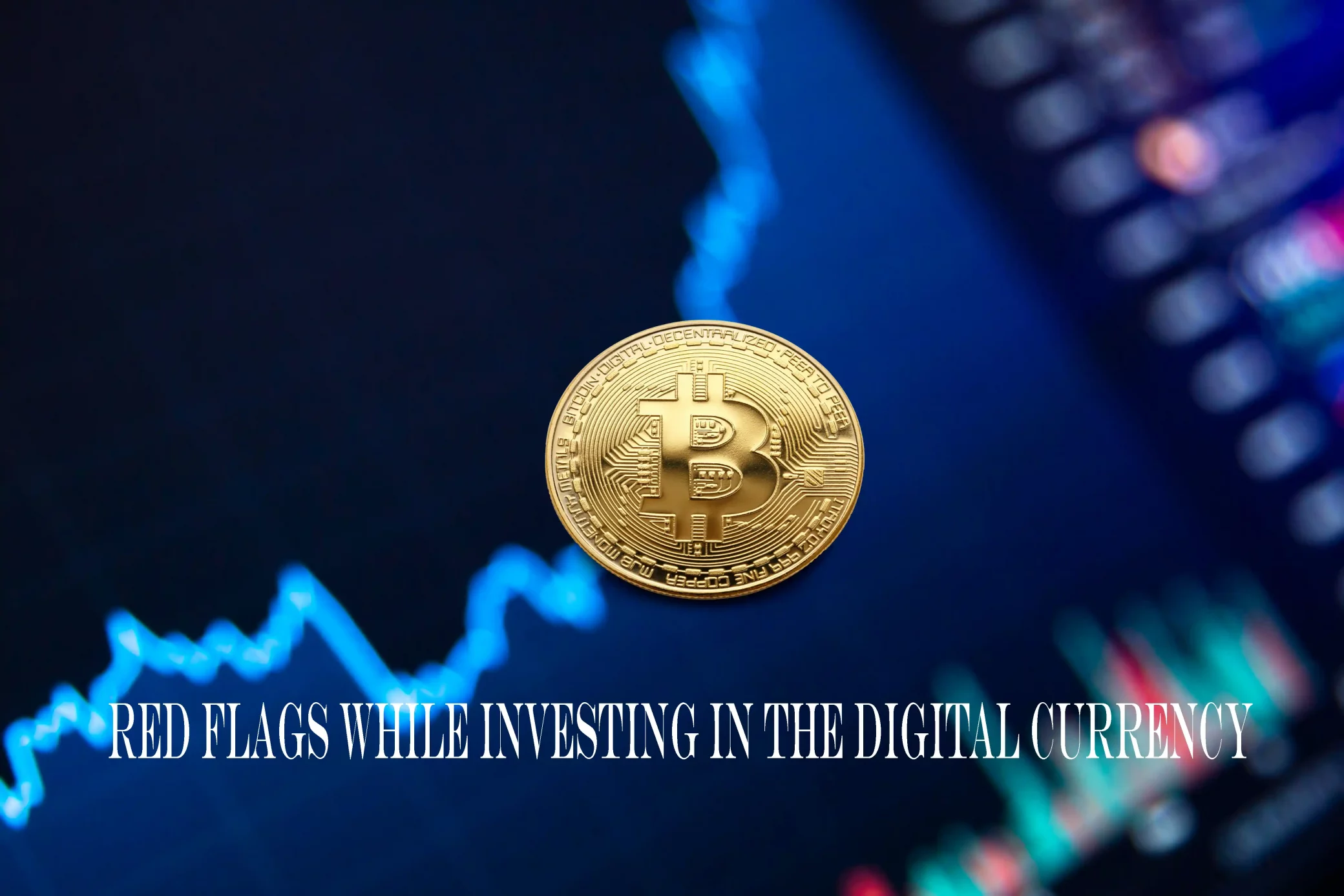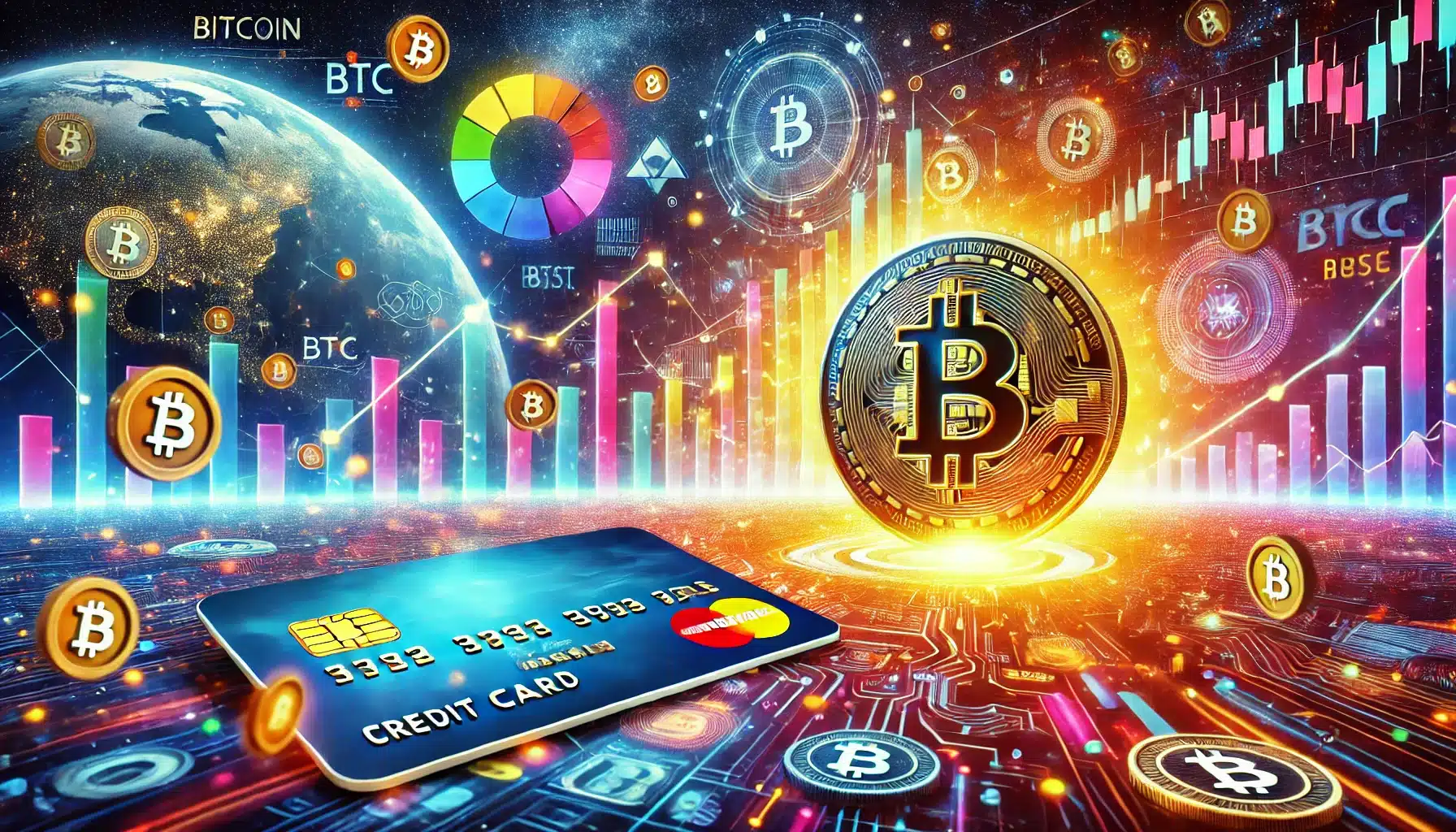Cryptocurrency
Red flags while investing in the digital currency

Table of Contents
Digital currencies are the new frontier, and the market is very volatile. As a result, it’s essential to be cautious when investing in them. Digital currencies are an exciting new option for investors. But before you invest, it’s necessary to understand how they work, how they’re regulated, and what you can expect from them in the future. Thus, after you have analyzed the loopholes in the path of crypto, it’s the virtuous time to paddle your crypto journey by engaging on this App.
1. Lack of appropriately crafted official documentation
The digital currency market is still young, but it’s growing quickly. As a result, it’s essential to invest in the currency that has been proven to work and is legal to use. If you’re still searching for a virtual asset that can change the world, you should look at one that has a team behind it that is experienced in blockchain technology. The team behind such coins should understand what they are doing, how they plan to do it, and how they will be able to do it ethically. When you invest in digital currency, you need to make sure that the money has been properly created and that it’s been appropriately managed by its creator. It would be best if you also made sure that there is a proper set of rules and regulations for how the currency can be used. If there aren’t any, or if they are not followed, you may lose a lot of money.
Virtual assets do not fall under the control or regime of a designated entity or working sphere including the central bank and therefore have no official guidelines for how they should be used or managed. This means there is no way to ensure that your money is being handled appropriately, which can lead to loss or theft of digital assets if people who are not authorized to address them are involved in transactions on your behalf.
2. High-value scams and thefts
Another red flag when investing in digital currencies is the possibility of high value scams and thefts from those who are not aware of what they’re doing or do not have enough information about their investments. This can lead to losses for those who don’t know what they’re getting into or don’t have time to research the market before making an investment decision or purchase order.
In addition to the lack of regulation mentioned above, there have been several cases where large amounts of digital currency have been lost or stolen due to hacks or other security breaches. Some experts believe this could be related to “widespread trading incompetence.” This means that many people who may be unfamiliar with digital currency may be making poor decisions about how best to protect their investments from fraudsters and hackers who are trying to steal their money through phishing attacks or malware infections on their computers.
3. Increased volatility
There is no doubt that digital currencies are volatile markets—especially when compared with traditional markets like stocks or bonds—so investors need to be prepared for this by researching past trends. There are many types of scams associated with digital currencies, including Ponzi schemes, where someone is paid to bring new people into an existing scheme; pyramid schemes, where the person bringing new people into this scheme gets paid more than anyone else; and fake wallets that steal your money from your account when you try to use them. If you’re investing in digital currency and want to keep your money safe from these types of scams, then make sure that you have a trusted wallet provider who will ensure that your funds are protected at all times.
Digital currencies are extremely volatile because they are so new—they haven’t been around long enough for their price movements to stabilize yet! This means that sometimes they can dip significantly below their original value before recovering again.
CLICK HERE: FOR MORE READING ABOUT UPDATED TIME AND PLEASE FOLLOW ME ON FACEBOOK, TWITTER
Final words
In general, digital currencies are designed to be decentralized, meaning that no one person or organization has control over their creation or use. This makes them resistant to the influence of central banks and other government institutions; they are also extremely difficult to counterfeit because they use consensus mechanism as a security measure.
Cryptocurrency
How to Buy BTC with a Credit Card and BTC Price Prediction for 2025

Table of Contents
Understanding Bitcoin and Its Growing Popularity
Bitcoin (BTC) remains the most well-known cryptocurrency globally. As the pioneer of blockchain technology, BTC has gained mainstream attention due to its decentralized nature, security, and investment potential. Many investors seek ways to purchase Bitcoin quickly and efficiently, leading to a surge in demand for convenient payment options. One of the easiest methods is to buy BTC with a credit card, allowing users to enter the crypto market instantly.
How to Buy BTC with a Credit Card
Purchasing Bitcoin with a credit card has become increasingly accessible due to cryptocurrency exchanges that support fiat-to-crypto transactions. Here’s a simple step-by-step guide:
- Choose a Reliable Exchange – Many platforms offer the option to buy BTC with a credit card, ensuring secure transactions and competitive rates.
- Sign Up and Verify Your Identity – Most exchanges require KYC (Know Your Customer) verification for security and compliance.
- Select Payment Method – Enter your credit card details and choose the amount of BTC you want to purchase.
- Confirm the Transaction – Once payment is processed, Bitcoin will be credited to your wallet almost instantly.
- Store Your BTC Securely – After buying Bitcoin, transfer it to a private wallet for added security.
By using platforms like SwapSpace, users can seamlessly convert fiat currency into Bitcoin within minutes.
Benefits of Buying BTC with a Credit Card
There are several advantages to purchasing Bitcoin with a credit card:
- Speed – Instant transactions allow users to acquire BTC without waiting for bank transfers.
- Convenience – Users can buy BTC from anywhere, at any time.
- Security – Trusted exchanges implement strict security protocols to protect users’ funds.
- Accessibility – Even beginners can easily navigate the process of purchasing Bitcoin.
BTC Price Prediction: What’s Next for Bitcoin?
As Bitcoin continues to evolve, investors closely follow its price trends. Many factors influence BTC’s price, including market demand, adoption rates, regulatory developments, and macroeconomic trends. Analysts and experts provide insights through BTC Price Prediction to help traders make informed decisions.
Key BTC Price Forecasts:
- Short-Term Predictions – Some analysts expect BTC to experience volatility due to market conditions, but overall growth remains positive.
- Long-Term Outlook – With increasing institutional adoption, Bitcoin could surpass previous all-time highs, making it a valuable long-term asset.
- Market Trends – Halving events, institutional investments, and blockchain advancements all play a role in BTC’s future pricing.
For an in-depth BTC price prediction, platforms like SwapSpace offer real-time data and expert forecasts.
Conclusion
Bitcoin remains a top choice for investors and traders worldwide. With the ability to buy BTC with a credit card, entry into the cryptocurrency market is easier than ever. Additionally, staying updated with BTC price prediction insights helps investors strategize effectively. As the crypto industry grows, Bitcoin continues to solidify its position as the leading digital asset.
FAQs
How can I buy BTC with a credit card?
You can buy BTC with a credit card through crypto exchanges that support fiat-to-crypto transactions.
Is buying Bitcoin with a credit card safe?
Yes, using reputable platforms ensures security, encryption, and fraud protection for credit card transactions.
What factors affect BTC price prediction?
Market demand, regulations, institutional investments, and BTC halving impact its price trends.
Where can I find accurate BTC price predictions?
You can check BTC Price Prediction platforms for expert forecasts and real-time analysis.
Why should I use a credit card to buy Bitcoin?
It offers instant transactions, convenience, and accessibility without waiting for bank transfers.
Cryptocurrency
FintechZoom: Your Ultimate Guide to Financial News and Market Insights

Table of Contents
FintechZoom is a widely recognized financial news and analysis platform that provides real-time updates on fintech, stock markets, cryptocurrency trends, and banking developments. It helps investors, traders, and financial professionals stay informed with expert insights, market predictions, and industry reports. As the financial world evolves, FintechZoom continues to be a trusted source for up-to-date information.
Key Features of FintechZoom
FintechZoom offers various financial services and updates, making it an essential resource for anyone interested in global markets. Some of its main features include:
- Stock Market Analysis: Covers daily movements in stock indices like the S&P 500, Dow Jones, and Nasdaq. It provides reports on major companies such as Apple, Tesla, and Amazon.
- Cryptocurrency Insights: Tracks Bitcoin, Ethereum, and other altcoins, providing predictions, news, and blockchain-related developments.
- Fintech News: Reports on technological advancements in the financial industry, including AI-driven trading, digital payment innovations, and blockchain applications.
- Banking Trends: Shares insights on online banking, digital wallets, and financial regulations that impact traditional and digital banking institutions.
- Economic Reports: Covers inflation rates, GDP growth, and global economic events that influence financial markets.
FintechZoom plays a crucial role in delivering real-time financial data, helping businesses and individuals make better investment decisions.
FintechZoom’s Role in Financial Markets
As a leading financial news provider, FintechZoom contributes to market analysis and investment strategies in various ways:
- Market Predictions: Offers expert analyses on stock price movements and economic trends, allowing investors to make informed decisions.
- Stock Market Coverage: Tracks daily fluctuations in stock prices and provides insights into market trends and investment opportunities.
- Crypto Investment Advice: Helps traders understand price movements, investment risks, and future growth potential in the cryptocurrency sector.
- Banking Sector Insights: Reports on the latest fintech developments and digital banking innovations that reshape financial services.
By offering in-depth reports, FintechZoom helps investors understand how different economic factors impact their portfolios.
Cryptocurrency Coverage on FintechZoom
The rise of digital currencies has made cryptocurrency news essential for traders and investors. FintechZoom covers various aspects of the crypto market, including:
- Bitcoin and Ethereum Price Movements: Tracks market trends, helping investors determine the best times to buy or sell.
- Altcoin News: Provides updates on smaller cryptocurrencies that have growth potential.
- Blockchain Developments: Discusses how blockchain technology is being used beyond cryptocurrency, such as in banking, supply chain management, and cybersecurity.
- Regulatory Changes: Covers laws and policies affecting crypto markets in different countries, helping traders navigate legal aspects of digital assets.
FintechZoom ensures its readers stay updated with all the latest cryptocurrency trends and industry insights.
FintechZoom’s Impact on the Fintech Industry
The financial technology industry is rapidly evolving, and FintechZoom plays a key role in highlighting important developments. Some of its contributions include:
- Digital Payment Innovations: Tracks advancements in contactless payments, mobile banking, and online transaction security.
- Artificial Intelligence in Finance: Covers the role of AI-driven trading systems, robo-advisors, and machine learning algorithms in financial decision-making.
- Tracking Fintech Startups: Analyzes emerging fintech companies and their impact on traditional financial institutions.
- Fintech Regulations: Discusses new compliance policies that affect digital banking and financial services.
FintechZoom continues to provide cutting-edge insights that shape the future of the financial technology industry.
Benefits of Using FintechZoom
FintechZoom is a valuable resource for investors, traders, and fintech enthusiasts. Some of the key benefits of using the platform include:
- Real-Time Market Updates: Helps users stay ahead of financial trends with up-to-the-minute stock and crypto news.
- Expert Financial Insights: Features professional opinions and market predictions from financial analysts and industry experts.
- Comprehensive Coverage: Offers a wide range of content, including stock market reports, fintech trends, economic updates, and cryptocurrency news.
- User-Friendly Interface: Provides easy navigation, allowing users to quickly find relevant financial information.
By delivering accurate and timely information, FintechZoom helps individuals and businesses make informed financial decisions.
Conclusion
FintechZoom is a trusted platform that provides financial news, market analysis, and investment insights. Whether you’re a stock trader, a cryptocurrency investor, or a fintech enthusiast, FintechZoom offers the latest information to keep you ahead in the financial world. With its real-time updates, expert analysis, and comprehensive coverage, FintechZoom remains one of the top sources for financial information in today’s digital age.
FAQs
What is FintechZoom used for?
FintechZoom provides financial news, stock market analysis, cryptocurrency updates, and fintech industry insights.
Does FintechZoom offer real-time stock updates?
Yes, FintechZoom tracks real-time stock movements, major indices, and investment trends for investors.
Is FintechZoom reliable for cryptocurrency news?
Yes, FintechZoom offers expert analysis, price predictions, and regulatory updates on Bitcoin, Ethereum, and altcoins.
Does FintechZoom cover fintech startups?
Yes, it provides insights into emerging fintech startups, innovations, and digital banking trends.
How can FintechZoom help investors?
It offers expert financial insights, stock and crypto market updates, and economic reports to guide investment decisions.
Cryptocurrency
Best Tips For Cryptopronetwork com Contact 2024

Table of Contents
Cryptopronetwork com Contact is the gateway to seamless communication between users and our dedicated support team. At Cryptopronetwork.com, we understand the importance of providing reliable assistance and support to our users. Our contact system is designed to streamline the process of reaching out for help, guidance, or feedback, ensuring that users have access to prompt and effective assistance whenever needed. Whether you have questions about account management, need technical support, or simply want to provide feedback on your experience, Cryptopronetwork com Contact is here to help.
Cryptopronetwork com Contact Information
Cryptopronetwork com contacting is simple and convenient, ensuring that users have easy access to assistance and support whenever needed. Here are the primary contact channels available:
-
Email address for inquiries and support
Users can reach out to Cryptopronetwork.com via email at [email protected] for any inquiries, questions, or support needs. Whether you have queries about account management, transactional issues, or general platform inquiries, the support team is ready to assist promptly and effectively.
-
Phone number for customer assistance
For immediate assistance or urgent matters, users can contact Cryptopronetwork.com’s customer support team directly by phone at 1-800-944-6825. Experienced representatives are available to address concerns, provide guidance, and resolve any issues users may encounter while using the platform.
-
Mailing address for correspondence
Users also have the option to correspond with Cryptopronetwork.com via traditional mail. The mailing address for correspondence is CryptoProNetwork 4924 Larry Street Milwaukee, WI 53202. Users can send letters or documents related to account verification, legal matters, or any other relevant correspondence to this address.
Cryptopronetwork com Contact Form
At Cryptopronetwork.com, our contact form serves as a crucial point of connection between our users and our dedicated support team. It provides a streamlined and user-friendly way for individuals to reach out with inquiries, feedback, or requests for assistance directly through our website. Our contact form is designed to collect essential information from users to ensure that their messages are directed to the appropriate recipient and that they receive prompt and personalized responses.
Tips for using Cryptopronetwork com Contact
- Start by navigating to the “Contact Us” page on the Cryptopronetwork.com website.
- Locate the contact form, which typically includes fields for your name, email address, subject, and message.
- Start by filling in the designated field with your entire name. This ensures that the support team can address you personally when responding to your inquiry.
- Next, provide your email address in the appropriate field. Make sure to double-check for accuracy to ensure that you receive a response from the support team.
- In the “Subject” field, enter a clear and concise title that summarizes the purpose of your message. This helps the support team prioritize and address your inquiry efficiently.
- Use the message field to provide detailed information about your inquiry, feedback, or request for assistance. Be specific and provide any relevant details to help the support team understand and address your needs effectively.
- Once you have completed all the fields, review the information you’ve provided to ensure accuracy and completeness.
- Finally, click the “Submit” button to send your message to the Cryptopronetwork.com support team. After submitting the form, check your email regularly for responses from the support team and respond promptly to any follow-up questions or requests for clarification.
Support Services of Cryptopronetwork.com
At Cryptopronetwork.com, we understand the importance of providing comprehensive support services to ensure a smooth and seamless user experience. Our dedicated support team is committed to assisting users with various aspects of their journey on our platform. The main support services we provide are as follows:
-
Assistance with account setup and management
Our support team is available to guide users through the process of setting up their accounts on Cryptopronetwork.com. Whether you’re a new user looking to create an account or an existing user needing assistance with account management tasks such as password resets or profile updates, our team is here to help every step of the way.
-
Technical support for platform-related issues
Technical issues can arise from time to time, and our support team is equipped to address them promptly and effectively. Whether you’re experiencing difficulties accessing certain features, encountering errors while making transactions, or facing other technical challenges, our dedicated technical support team is available to troubleshoot and resolve issues to ensure a smooth user experience.
-
General inquiries and feedback submission
We value feedback from our users and strive to provide excellent customer service. Our support team is here to address general inquiries, provide information about our platform and services, and assist with any other questions or concerns users may have. Additionally, we encourage users to submit feedback and suggestions to help us improve and enhance the Cryptopronetwork.com experience for everyone.
Cryptopronetwork.com Customer Assistance
At Cryptopronetwork.com, providing excellent customer assistance is a top priority. We understand that navigating the world of cryptocurrency can sometimes be complex, and we’re dedicated to ensuring that our users have the support they need every step of the way. Here are the key components of our customer assistance services:
-
Live chat support availability
Our live chat support feature allows users to connect with a member of our support team in real time. Whether you have a quick question, need assistance with a transaction, or require guidance on using a specific feature of our platform, our friendly and knowledgeable support representatives are available to assist you promptly and efficiently via live chat.
-
Help center resources and knowledge base
Our comprehensive help center is filled with useful resources, articles, and guides to help users navigate our platform effectively. Whether you’re looking for information on account setup, security measures, or trading strategies, our help center provides valuable resources to address a wide range of topics and inquiries. Users can easily access the help center directly from our website to find answers to their questions and expand their knowledge of cryptocurrency.
-
Step-by-step guides and tutorials for users
We understand that some users may prefer more detailed guidance when navigating our platform. That’s why we offer a variety of step-by-step guides and tutorials to help users understand various aspects of Cryptopronetwork.com. Whether you’re learning how to execute a trade, set up advanced security features, or navigate our dashboard, our tutorials provide clear and concise instructions to help you achieve your goals with confidence.
Cryptopronetwork com Contact Social Media
Here are some Social Media Accounts for contacting us at Cryptopronetwork.com.
Twitter: @CryptoProNet
Facebook: CryptoProNetwork
YouTube: Crypto Pro Network
Conclusion:
In conclusion, the Cryptopronetwork com contact form serves as a vital tool for users to connect with our support team effectively. By providing clear and accurate information, users can ensure that their inquiries, feedback, or requests for assistance are addressed promptly and efficiently. Utilizing the contact form properly, along with following the provided tips, enables users to navigate the communication process seamlessly, leading to a more satisfying experience.
-

 Travel4 years ago
Travel4 years agoThe Family of Kirk Passmore Issues a Statement Regarding the Missing Surfer
-

 Technology4 months ago
Technology4 months agoManyroon: The Key to Unlocking Future-Proof Business Solutions
-

 Cryptocurrency1 year ago
Cryptocurrency1 year agoBest Tips For Cryptopronetwork com Contact 2024
-

 Technology3 years ago
Technology3 years agoPaturnpiketollbyplate Login & Account Complete Guide Paturnpike.com
-

 Apps & Software2 years ago
Apps & Software2 years agoFapello 2023: Social Media Platform for NSFW Content
-

 Law3 years ago
Law3 years agoShould I Hire a Lawyer For My Elmiron Case?
-

 Business4 months ago
Business4 months agoCoyyn.com Gig Economy: Smart Contracts and Fair Payments for Freelancers
-

 Business4 months ago
Business4 months agoAcumen: The Key to Smart Decision-Making and Success






